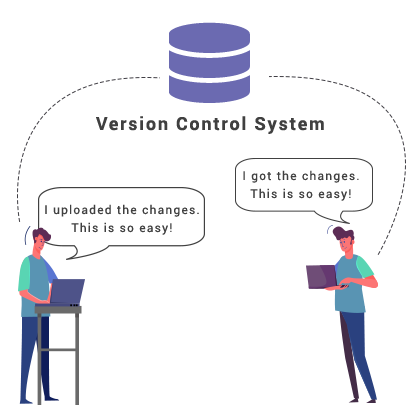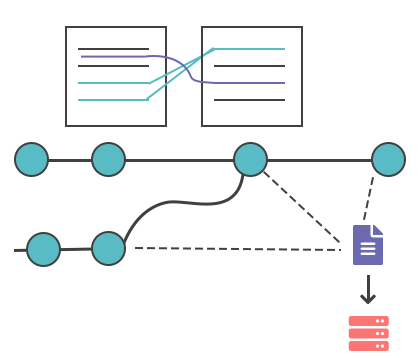Definition
Git is a version control system that is widely used in the programming world. It is used for tracking changes in the source code during software development. It was developed in 2005 by Linus Torvalds, the creator of the Linux operating system kernel.
Importance of Git
Git is a speedy and efficient distributed VCS tool that can handle projects of any size, from small to very large ones. Git provides cheap local branching, convenient staging areas, and multiple workflows. It is free, open-source software that lowers the cost because developers can use Git without paying money. It provides support for non-linear development. Git enables multiple developers or teams to work separately without having an impact on the work of others.

Performance of Git
Git stands out with its performance advantages. Performance optimized operations are branching and merging, committing new changes, and the comparison of the past versions. One of the Git performance strengths is its advanced algorithms.
Git focuses only on the file content while determining its storage and version history of the tree. The source code files are renamed, split, and rearranged regularly. The object format of Git repository files uses a mixture of delta encoding and compression. It stores directory contents and version metadata objects.
Security of Git
The main priority of Git is the integrity of managed source code. In Git repository, versions, directories, the content of the file, tags, and commits are secure because a cryptographically secure SHA1 hashing algorithm is used, which ensures secure code history. Git provides an authentic content history of the source code.
Flexibility of Git
One of the advantages provided by Git is its flexibility in several aspects:
- Track Changes – Changes can be tracked as someone making a change leaves a commit message about it.
- Backup and Restore – It helps to maintain the source code backup.
- Collaboration - It enables software team to collaborate with each other.
- Branching and Merging – Changes are made on a branch and after being approved, they can be merged with the master branch. You can see who changed the file and what parts of the content are changed.
- Deployment - It deploys the source code on the server with only one command.

Version Control With Git
Nowadays, Git is the most preferred version control system because it has almost everything that developers need to get more effective results. The main reasons for this are listed below:
- Git is so popular, that majority of developers can work on it, even before graduating colleges or universities. Besides, Git is considered to be the basis of version control systems, because the developers, who have already learned to work on it, can easily possess other ones.
- Due to its prevalence, many major software tools and services are incorporated in Git.
- There are lots of books, tutorials, and even specialized websites, that can help the developers to learn Git.
- As Git is open-source software, the developers have the opportunity to use it without paying any charge.
The main reason Git is being criticized is the difficulty of learning it. Particularly, some terms used in Git can have other definitions than in other VCS. However, it worths learning it, as the ability to use Git is an excellent advantage for teams and individual developers and is one of the keys of their future success.
The most popular Git solutions
Git suggests some repository management services that you can find useful. In general, repository management services are the key to fast and effective software development. The most popular ones based on Git are GitHub, Bitbucket and GitLab.
GitHub is a git-based repository host originally launched in 2008 by Tom Preston-Werner, Chris Wanstrath, and PJ Hyatt. It is the largest repository hosting platform with more than 38 million projects. It permits to host and review code, manage projects and build software.
Bitbucket was launched in 2008 by an Australian startup and originally supported only Mercurial projects. In 2010 Bitbucket was bought by Atlassian, and from 2011, it started to support Git hosting, which is now its main focus. It provides free unlimited private repos, Jira and Trello integration and built-in continuous delivery.
GitLab started as a project by Dmitriy Zaporozhets and Valery Sizov in 2011, which aim was providing an alternative to the available repository management solutions. The company was, however, only incorporated in 2014. It provides continuous integration and delivery, agile development, Auto DevOps, etc..
Practice Your Knowledge
Quiz Time: Test Your Skills!
Ready to challenge what you've learned? Dive into our interactive quizzes for a deeper understanding and a fun way to reinforce your knowledge.